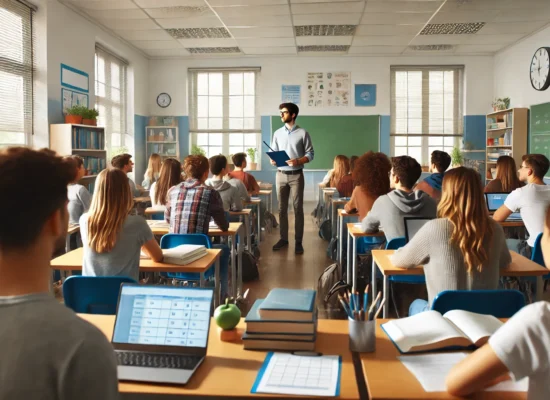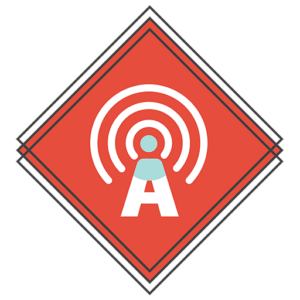
Table of Contents
ToggleKey takeaways:
- Student attendance does have a high impact on academic performance.
- Studies show a clear correlation between regular attendance and higher grades and improved engagement.
- Attendance fosters lifelong learning habits. Beyond academics, consistent attendance instills responsibility, self-discipline, and time management skills valuable for personal and professional growth.
- While attendance matters, rigid policies can be counterproductive. Consider individual needs, diverse learning styles, and alternative learning avenues in attendance strategies.
- Technology can aid attendance tracking. Tools like Attendance Radar simplify the process for educators, freeing up time and reducing discrepancies
Introduction
Updated: 24 June, 2025
A classroom full of eager, engaged learners, participating in conversations, questions and forming a vibrant learning environment. This is the ideal scenario for any educator.
However, the reality often paints a different picture: empty desks, little class interaction, and a sense of stagnation. Mainly due to the unfortunate consequence of absenteeism.
Attendance, often overlooked, plays a pivotal role in determining a student’s academic success. It is the foundation on which knowledge is constructed, the bridge that connects learning experiences and growth. Regular attendance ensures that students stay ahead of the curriculum, actively engage in class discussions, and receive timely feedback from teachers.
The prevalence of absenteeism, unfortunately, impacts an essential aspect of education. According to the National Centre for Education Statistics (NCES), approximately 38% of students in the United States miss an average of 18 days of school each year. This translates to significant gaps in knowledge and a reduced likelihood of academic achievement.
Absenteeism’s impact extends beyond test scores. It disrupts the learning process, hinders the development of critical thinking skills, and impedes the formation of strong relationships with peers and teachers. These missed opportunities can have far-reaching consequences, affecting a student’s overall academic trajectory and future prospects.
Throughout this blog, we are going to take a look at the impact student attendance has on academic performance.
Understanding the direct link between attendance and achievement
The connection between student attendance and class performance has been extensively studied, with a vast amount of empirical evidence gathered demonstrating a strong correlation between the two. Let’s go through some of these studies:
Study 1: The Effect of Class Attendance on Academic Achievement in an Online Course. Ersoy, A. (2021).
This study examined the relationship between class attendance and academic achievement in an online course for higher education students. The study used data from a sample of 400 students who took an online course in a university in Turkey. The analysis revealed that students who participated more actively in the course generally achieved better outcomes than those who participated less frequently. The study also found that attendance was more strongly correlated with academic achievement in courses with more complex material.
Study 2: Class Attendance in College: A Meta-Analytic Review of the Relationship of Class Attendance With Grades and Student Characteristics. (Credé, Roch, and Kieszczynka. 2010).
This study conducted a meta analysis of 85 studies that examined the relationship between class attendance and academic engagement and achievement. The study found that there was a significant positive relationship between attendance and both achievement and engagement. An increase in engagement and attendance was 33% and the increase in achievement was 28%.
Study 3: The Association Between Class Attendance and Academic Performance. (Attewell, P. A., Lavin, D. E., & Thurston, P. W. 2001).
This study investigated the association between class attendance and academic performance in high school students. The study used data from a national longitudinal study of high school students to track the attendance and academic performance of a cohort of students from elementary school through high school. Students who attended class regularly had an average GPA of 3.2, while students who attended less frequently had an average GPA of 2.8.
The study found that students who attended class regularly had higher grades and were more likely to graduate from high school, by 37%. Moreover, the study found that the association between attendance and achievement was stronger for students from low-income families.
These studies, and numerous more, provide compelling evidence that regular attendance is a crucial factor in academic success.
Why regular attendance builds lifelong skills
Regular attendance goes beyond fulfilling a requirement, it shapes lifelong learning habits crucial for personal and professional growth. It instils responsibility and commitment, fostering a proactive educational approach. Classroom engagement exposes students to diverse perspectives, critical discussions, and problem analysis, honing their ability to evaluate information and articulate thoughts clearly. Additionally, attendance facilitates timely feedback, aiding in identifying strengths and weaknesses and helping self-awareness, and ultimately enhancing learning effectiveness.
Beyond academics, attendance cultivates lifelong learning habits, instilling self-discipline, time management, and prioritisation skills. These skills are not limited to education but are elements that help empower individuals to achieve goals and achieve success in their personal and professional lives.
The case against rigid attendance policies
While the research presented does indicate an undeniable correlation between attendance and academic performance, it’s crucial to acknowledge some counter-arguments to this. It’s important to mention that rigid attendance policies could do more harm on a students outcomes than more flexible policies.
Admit it, all of us here have skipped a class or a day of school/university because we weren’t having a good day, we weren’t feeling up to it, or many other reasons. And it is highly probable that because of that one day skipped, you didn’t miss a week, or a month, you just needed a day. Sometimes we all do. (Read here for a blog on mental health and school attendance.)
Not all learning happens within four walls. Independent study, online resources, and participation in extracurricular activities can contribute significantly to a student’s understanding, even if they miss some class time. Focusing solely on physical attendance might discount these alternative learning avenues. Learning styles and needs vary greatly among students. Some might thrive in traditional classroom settings, while others learn better through alternative methods or at their own pace. Rigid attendance policies can disadvantage those who benefit from flexibility and self-directed learning. Overly strict attendance policies might create a culture of fear and micromanagement, hindering student’s development, trust and personal responsibility.
So it’s important to present both arguments daily and objectively, acknowledging the potential benefits of attendance policies while advocating for a balanced approach which leads from trust and student motivation.
If student attendance isn’t mandatory at your school, and you feel attendance is lower than it could be, here are 5 key ways to improve student attendance.
Technology as an Ally in Attendance Tracking
Improving student attendance is, in many ways, out of our control. Especially if student attendance is not mandatory, in a previous blog, we have written about whether student attendance should be mandatory in college.
Fortunately, technology emerges as a powerful ally in tackling part of this issue. There are many innovative tools which can streamline attendance tracking, eliminating manual lists or roll calling, some of which are explained in this blog, with their advantages and disadvantages. We believe the best and most efficient way to track attendance is with Attendance Radar.
Attendance Radar is an innovative app which streamlines the process of tracking student attendance. Leveraging Bluetooth technology, Attendance Radar transmits a secure singal from the instructor’s device to students’ smartphones via a hidden signal. With a single tap, students effectively mark themselves present.
How it works is: teachers can set up a course within the app and students can join by selecting the appropriate signal emitted by the teacher’s app. During each class, the teacher can activate a signal which students can click on their app to mark themselves as present. The app then generates an attendance list which teachers can use to log attendance into their system. If students do not have a phone or have forgotten theirs, they can request the teacher to manually register their attendance.
Our solution offers remarkable efficiency, enabling the seamless tracking of a class with hundreds of students in mere seconds. Farewell to attendance discrepancies, time-consuming manual processes, and student grievances over inaccurate attendance records.
We offer different versions of the app, starting off with its free version, to premium and finally a university tenant. If you would like to try Attendance Radar out, take a look here.

Conclusion
While acknowledging individual needs and diverse learning styles, this blog has shown a strong link between attendance and academic success. But attendance isn’t just about physical presence, it’s the bridge of active engagement, critical thinking skills, self discipline and reflection to lasting knowledge.
Cultivating a culture of responsible attendance empowers students to build upon classroom experiences and foster a foundation for lifelong learning and personal growth.
Try out Attendance Radar to efficiently keep track of attendance.
Other interesting articles
Author
-

Michaella Masters
Michaella is the Community and Content Manager for Codific.
View all posts
With a strong background in digital marketing, she has played a big role in shaping the company’s online presence and content strategy. Michaella holds a bachelor's degree in Digital Marketing from Geneva Business School.
She is responsible for managing the online presence for all of our SaaS solutions across various platforms and writes on a range of topics in Ed-Tech.Recent Posts






